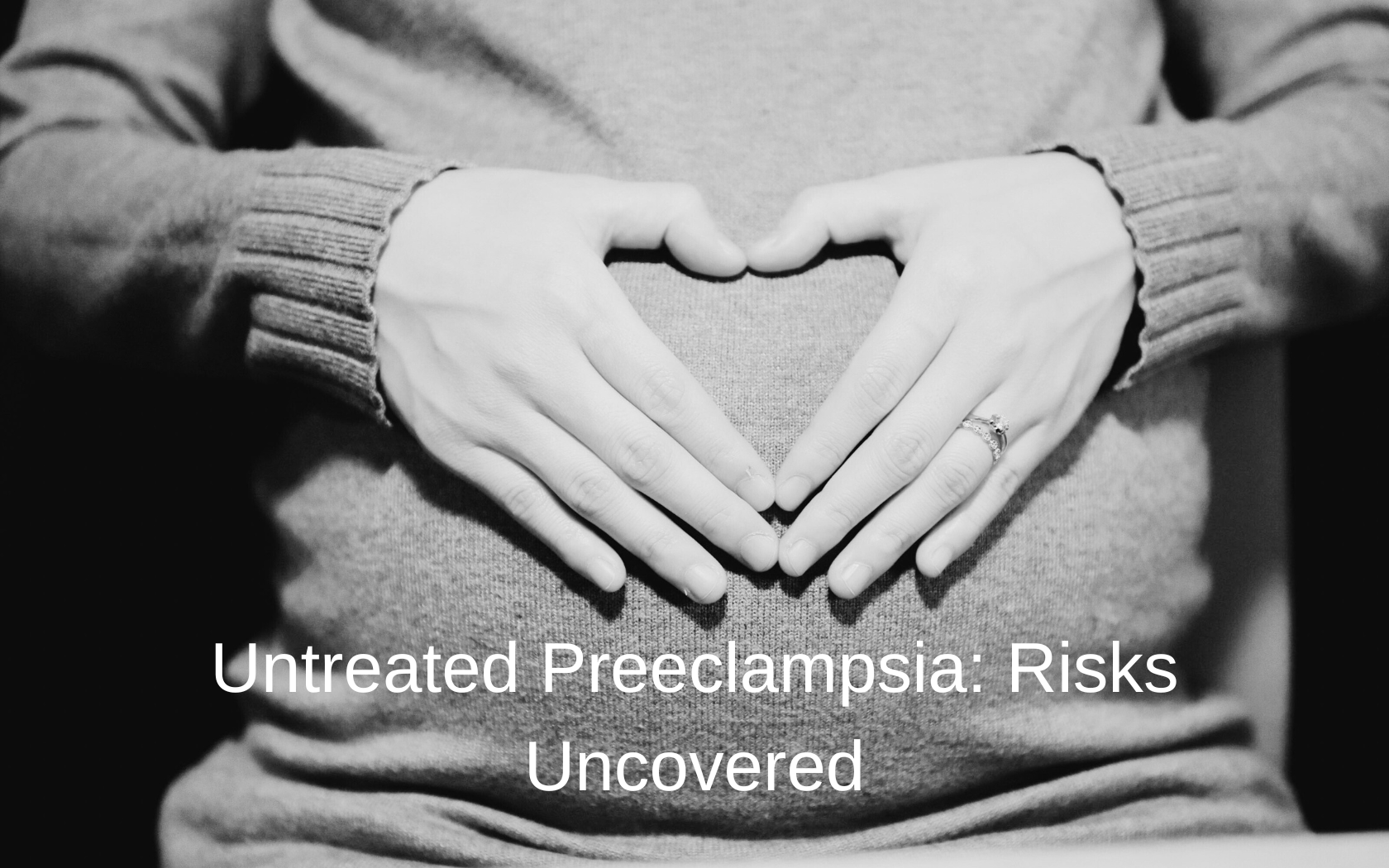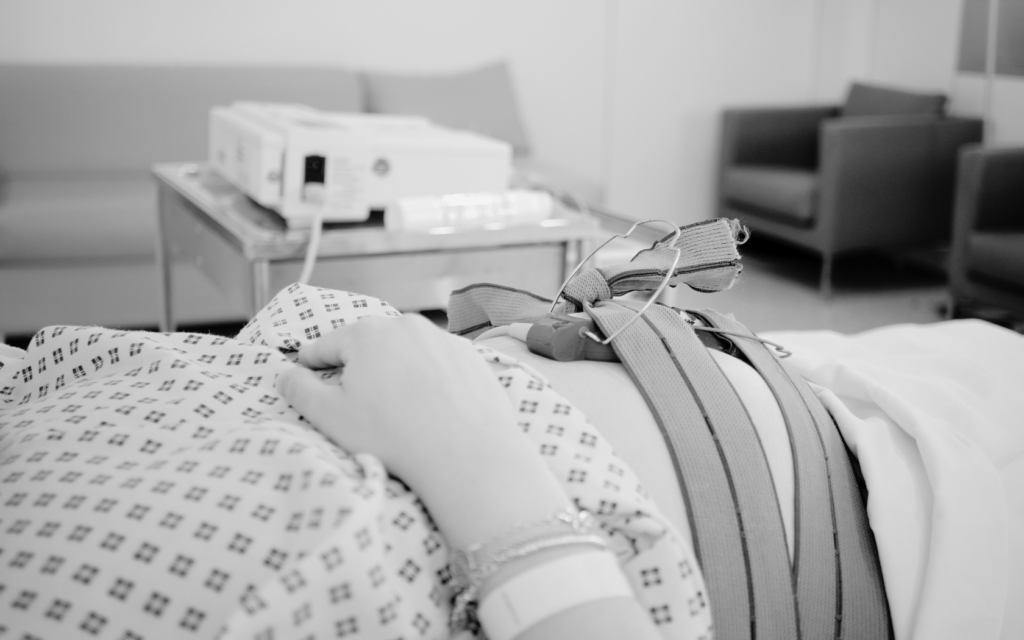Like an unpredictable storm, preeclampsia can happen without warning. But once a storm starts, measures can be taken to prevent the hazards that follow it, like floods and power outages. Likewise, to prevent serious complications, doctors must treat untreated preeclampsia effectively and promptly.
Below, we’ll discuss:
- What happens if preeclampsia is not treated
- The possible long-term effects of preeclampsia
- What your legal options are when injured because of untreated preeclampsia

What is Preeclampsia?
Preeclampsia is a condition that can happen when a pregnant woman has high blood pressure. According to the Mayo Clinic, it usually occurs after 20 weeks of pregnancy.
Untreated preeclampsia can lead to serious health issues for both the mother and the baby. To avoid harm, medical providers need to monitor women with preeclampsia carefully and provide proper care on time.
Preeclampsia is fairly rare, affecting about 5-8% of births in the United States. However, this rate is on the rise. In the last two decades, it has increased by 25%. Today, preeclampsia is one of the top causes of maternal and infant death in the U.S.
How Preeclampsia is Diagnosed
Doctors should be watchful for symptoms that suggest the onset of preeclampsia. These include:
- Nausea and vomiting
- Shortness of breath
- Pain in the sternum
- Pain in the upper abdomen, often on the right side
- Headaches that don’t get better with over-the-counter medication
- Blurred or double vision
- Swelling from fluid retention, often in hands and face
- High blood pressure
- Increased protein in the urine
Diagnosing preeclampsia often involves:
- Monitoring blood pressure
- Checking for signs of organ damage
- Conducting urine tests to detect proteins
Preeclampsia can develop in pregnancy, during labor, or even after labor. So regular prenatal check-ups and close monitoring are crucial to detect and manage it.
Untreated Preeclampsia Can Cause Eclampsia
Most women make a full recovery from preeclampsia when they’re treated on time. They’re able to deliver healthy babies with no complications.
But untreated preeclampsia can escalate quickly. It can progress to severe preeclampsia or eclampsia. These conditions can be life-threatening. Eclampsia can cause convulsions and seizures, which are dangerous for both the mother and baby.

Long-Term Effects of Preeclampsia
Untreated preeclampsia can put women at greater risk of developing cardiovascular diseases later in life, including hypertension (high blood pressure), stroke, and heart disease.
Preeclampsia can also affect the kidneys. In some cases, it may lead to long-term kidney damage or an increased risk of chronic kidney disease.
Women with a history of preeclampsia may have a higher likelihood of developing metabolic disorders, such as type 2 diabetes. In addition, going through the stress of preeclampsia can take a toll on a woman’s mental health. It can lead to anxiety and depression that continue long after childbirth.
Not every woman who experiences preeclampsia will have these complications. Prompt, adequate medical intervention cuts down on the risk of long-term effects of preeclampsia. But if medical treatment is lacking, the risk of lifelong consequences skyrockets.
What Happens if Preeclampsia is Not Treated Due to Negligence?
Sometimes a doctor’s negligence is the reason why preeclampsia goes untreated. This is a rare occurrence because the vast majority of doctors aren’t trying to commit errors and do harm. But they’re still human—and humans make mistakes.
Here’s how negligence could lead to untreated preeclampsia:
- Failure to monitor blood pressure. Doctors should monitor blood pressure during regular prenatal visits and during labor.
- Dismissing or ignoring symptoms of preeclampsia without assessing them.
- Inadequate follow-up care. For example, if a woman had preeclampsia in a previous pregnancy, she will need heightened monitoring. It would be negligent to overlook this increased risk.
- Misinterpretation of test results. Preeclampsia diagnosis involves analyzing blood pressure readings, urine protein levels, and other tests. Misinterpreting these tests can delay treatment.
- Failure to recommend early delivery. Delivering the baby early is often the best course of action in cases of severe preeclampsia and eclampsia.

Can I Sue for Untreated Preeclampsia?
Let’s consider an example of untreated preeclampsia in which the family had grounds to sue. During her third trimester, a pregnant woman displayed symptoms of preeclampsia. She had elevated blood pressure, excess protein in urine, and persistent headaches. But her doctor failed to diagnose her with preeclampsia, despite all the red flags.
As a result, the woman had severe complications. Her preeclampsia progressed to eclampsia. She had seizures that endangered both her and the unborn baby. The medical team decided to perform an emergency C-section. But it was too late. The baby was born with complications, including respiratory distress and low birth weight. The woman suffered permanent kidney damage.
In this case, doctors could have caught and treated preeclampsia early on. They could have prevented it from escalating to eclampsia. As a result, the woman and her child were injured. The family would have grounds to sue.
If you or a family member experienced preeclampsia and didn’t receive adequate care, you may be eligible to sue your practitioner or hospital. To find out how to get started with your claim, give us a call.




